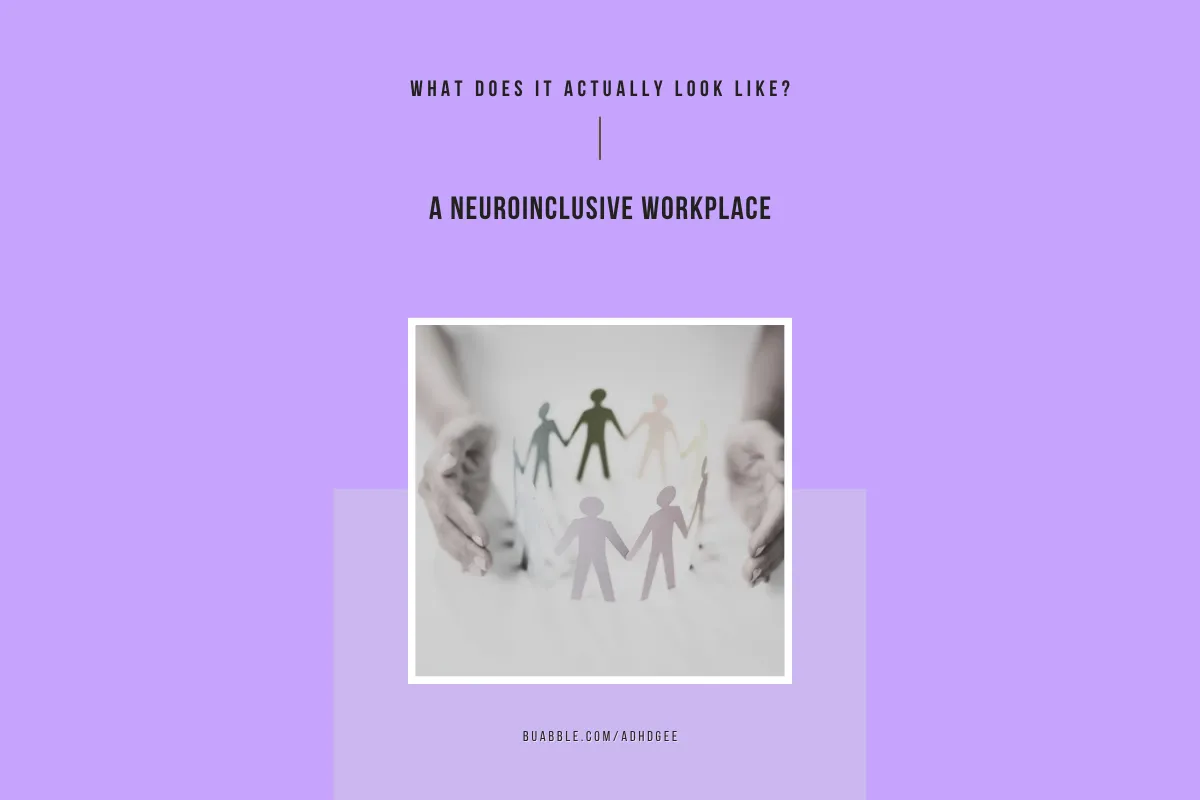
What a Neuroinclusive Workplace Actually Looks Like
What a Neuroinclusive Workplace Actually Looks Like
Neuroinclusion isn’t about making big, sweeping gestures. It’s about building systems and cultures that don’t penalise people for thinking, communicating, or working differently.
But what does that actually look like?
Here’s a glimpse into what a neuroinclusive workplace really means in practice.

🧠 Communication
Clear agendas and written follow-ups for meetings
Flexibility in how people contribute: speaking, typing, emailing, etc.
Low-context requests (no guesswork)
Allowing time to process before expecting a response
📈 Result: Less anxiety, fewer miscommunications, and more engagement.
🧠 Flexibility
Customisable workflows (e.g. quiet mornings, off-camera time, flexible deadlines)
Project planning that accounts for “attention waves” or energy shifts
Focus on results, not just activity
📈 Result: More sustainable productivity and better well-being.
🧠 Physical and Sensory Environment
Optional lighting adjustments, noise-cancelling options, or quiet spaces
Freedom to stim, stretch, or walk while thinking
Sensory-friendly onboarding and training
📈 Result: More comfort = better concentration and creativity.
🧠 Management and Leadership
Inclusive feedback practices: regular, specific, constructive
Clear roles, expectations, and definitions of success
Coaching for managers to support neurodivergent team members
Culture where disclosure isn’t required for respect
📈 Result: Retention, trust, and higher morale.
Final Thought
A neuroinclusive workplace doesn’t just “accommodate” neurodivergent people, it sees them as essential to innovation, problem-solving, and the future of work.
The best part? What supports neurodivergent employees often helps everyone.
👉 Want help making neuroinclusion a reality at your organisation?
Let’s work together.
📩 Book a free Introductory Conversation on [email protected]
